
The History of Final Fantasy
The year is 1987. A small Japanese videogames company by the name of Square Ltd is struggling. They've been making games for the Famicom -- the Nintendo Entertainment System -- and profits have been poor. It is decided the company needs a true masterpiece to save it from financial collapse. Hironobu Sakaguchi, the president of Square, decided that it was time for one final attempt to crack the videogames market. He decided he was going to do what he always wanted to -- tell a story through a game.
Copied from and in many ways a tribute to the Dragon Quest series, the game would tell an epic tale and yet still be fun to play. If this game failed, so would Square. This was the final crack at the business they wanted to be in -- their Final Fantasy. And so, that's what they called the game..
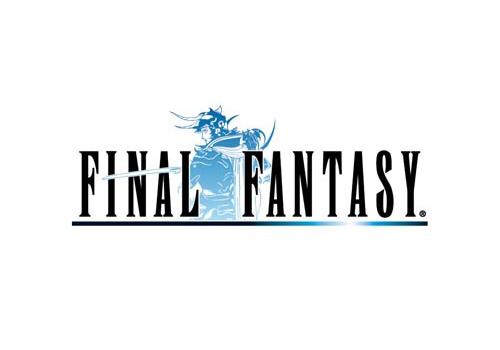
Final Fantasy I opens with a very simple quest -- saving a princess. Such an idea was typical of RPGs of the day -- just look at Zelda and Dragon Quest for two very famous examples. The difference with Final Fantasy was that rescuing the Princess was over in no time, and that was just the beginning of their quest that would expand to not just saving a princess or a Kingdom, but the whole world. The story features twists and changes of the like never before seen in an RPG, and is considered revolutionary.
The original Final Fantasy to this day is the only game that allows you to assign classes and roles to your characters before the game begins. You have a choice between the Fighter, Black Belt, Thief, and Black, White and Red Mages -- all of which went on to become staples of the entire series. Later these classes are upgraded, Fighter becoming Knight, with the mages becoming Wizards and Sorcerers and so on, which is also mirrored later in the series. Magic is split into levels -- usually three for each element, something which holds true even today.
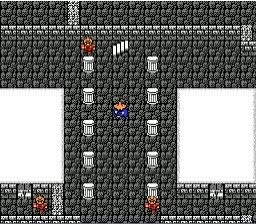
Final Fantasy features basic turn-based combat. You pick an action, your characters perform it, and then your opponent does the same. It's simple but enduring gameplay that while repetitive becomes rewarding as your characters become super powerful.
These days, it is hard to view Final Fantasy I as the revolutionary game it was on its release. It's simple, and it lacks the character development of the main party that is a staple of the later games -- the main characters are nameless and lack any personality. However, it's the very core of what the series is about -- the basic classes, the simple battle system, and plot with twists and turns -- while it was in no way perfect, it was the start of something special. This was proven by the sales.
To improve, we needed a sequel...
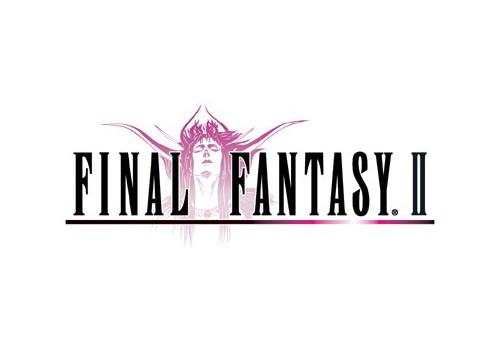
Final Fantasy II was released just one year later -- Square weren't about to stop after the success of the original, which saved the company. This is a classic story of an evil empire that the heroes set out to destroy. This time you play as set characters, who also have set classes and strengths and weaknesses. In terms of gameplay, it's a little simpler -- your characters gain skills and levels as they fight and use weapons and you have to buy magic as you buy items. The game's system is radically different from other Final Fantasies, and is often treated negatively by fans as such.
Despite this, FF2 gives birth to many of the traditions of the series. The game sees several recurring monsters make their debut, while weapons such as the Masamune make their first appearance. Also in the series for the first time are several spells such as Ultima, a character named Cid, and a strange bird creature called a Chocobo...
Final Fantasy II is closer to the storytelling that is a symbol of the series these days than any other of the NES games. It takes the idea of an epic plot and series of events further than almost all games of the period, and set the course for games to come.
Final Fantasy III is the only FF that is missing some form of US release -- though now it is set to get one with Final Fantasy III DS, an all-new remake for Nintendo's dinky touch screen handheld. Final Fantasy III returned to the classic levelling up featured in the original title, ditching the equipment and usage related stats and replacing it with old fashioned exp for killing monsters. The title continues the classic FF formula of an epic plot punctuated by simplistic gameplay, but this time complicates things a little more with the job system, which allows you chop and change the jobs of your characters in-game, making for a very tactical system where you can build characters with a plethora of skills.
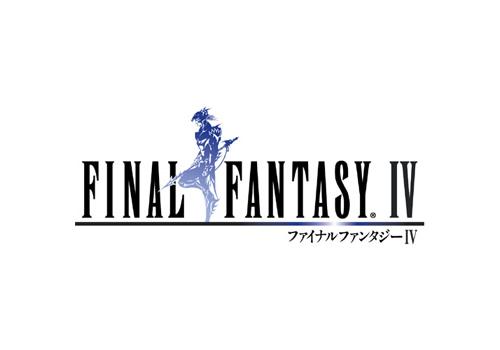
Final Fantasy IV, meanwhile, was released in America at first as Final Fantasy II -- the first time since the original to get a translation and reach Western shores. It's also the first Final Fantasy game to appear on the SNES, and as such had cutting edge 16-bit graphics and mode 7 cutscenes (essentially semi 3D.) The story was an epic, spanning across three different game worlds and giving you control of many more characters than previous games, all of whom now have a distinct back-story and personality of their own.
One thing most forget about FF4 is that it is one other important first -- it is the first title in the series to have a love story as a major plot focus -- something many, many instalments of the series would go on to do.
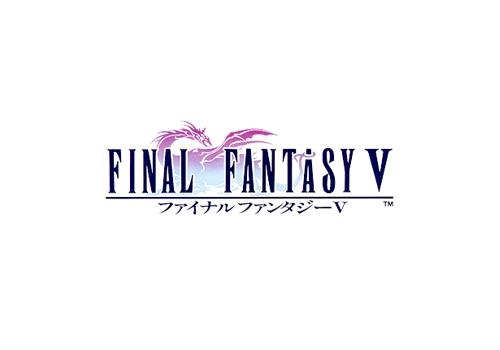
Final Fantasy V once again didn't receive an American release until many years later, in a port -- but was very popular in its homeland, and is a favourite of many English-speaking FF fans to this day. It's a return to the old-school, with only four characters populating your team, as opposed to the huge selection of warriors available in previous games. This game took the job system of Final Fantasy III and improved on it, and the job system causes this to be many people's favourite title in the series. The retro flavour is reminiscent of FF1. One step forward, two steps back? The series was about to take a giant leap forwards...
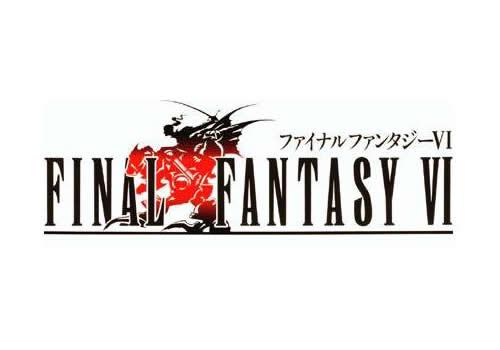
Final Fantasy VI has been praised on almost every level by critics everywhere. It had groundbreaking graphics and an incredible soundtrack composed by Nobuo Uematsu. FF6 found its way to US shores named as Final Fantasy III -- on a huge 24 meg cartridge, it was hailed as one of the best RPGs ever with it's incredible plot, characters and fun gameplay.
The game is very much a culmination of the 2D Final Fantasies, with a mixture of the features from each. Your characters have set jobs and classes, but levelling up is a lot more intuitive thanks to equipment you can use, but truly the main wonder of this game is the plot. Incredibly deep, epic and moving, Final Fantasy VI uses what little it had -- it's 16-bit graphics and 8 channel sound -- to create an epic experience that to this day holds a special place in people's hearts.
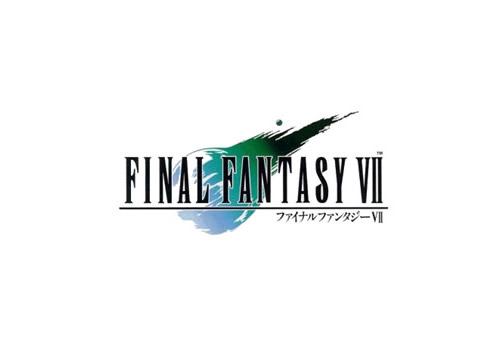
Final Fantasy VII is definitely the most famous title in the series. If you ask people to name an FF hero, they will likely talk of Cloud -- ask for a female lead, people will talk about Aeris or Tifa. If FF6 made the mainstream aware of RPGs, FF7 is the game that finally got the mainstream playing them. For the first time, the series is on the Playstation console, moved from Nintendo's N64 due to the advantage of disk-based media. The reason the title reverts back to the Japanese numbering is simple -- hype for this game was so huge that many knew it by its Japanese title as opposed to what would've been the US one -- Final Fantasy IV.
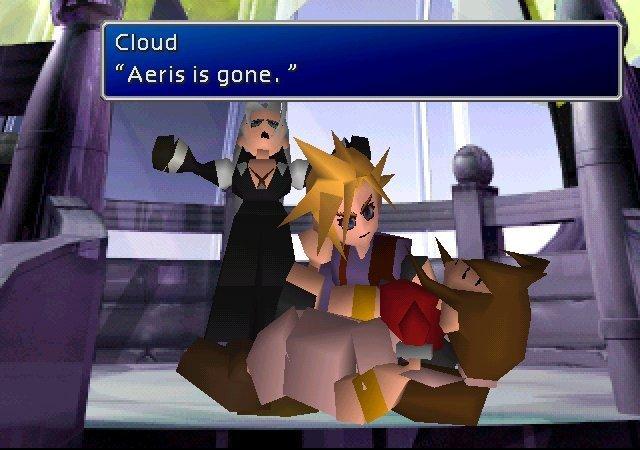
Final Fantasy VII was similar to other, older titles with its materia system and epic plot, but introduced the use of impressive full motion video sequences to gaming. Mostly laughed upon at the time, these sequences subsequently became a huge part of the PS1 era, used by many titles including all 3D FFs to come after their inclusion in FF7. There's some slight changes to the battle system -- many characters can use more than the basic four commands with careful levelling, and only three characters battle at a time, for example. RPGs, Sony and indeed Gaming in general owes a lot to FF7 -- it was the game that sold the Playstation to many, and it proved to many others games were an art form and could be as emotionally moving as movies (as demonstrated by one particular moment of the game, famous amongst gamers everywhere..) And, as expected, it had fantastic turn-based gameplay.
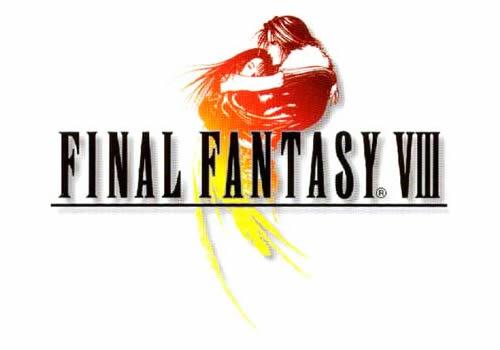
Final Fantasy VIII was met with more than a bit of a negative reation from fans of Final Fantasy VI and VII thanks to the fact it was as much of a departure from those games as FF2 had been from the original. It featured a new "draw" system for magic, summons became "Guardian Forces" and all characters had a realistic look to them compared to the cartoony caricatures of FF6 and 7. On top of all this, the whole plot was built around the main characters being in love, with saving the world very much secondary to the love plot.
In many ways, FF8 was branded with an unfair reputation right away thanks to those expecting more of the same. Despite its clear differences, the lack of chocobos, moogles, and other Final Fantasy favourites don't make FF8 a worse game. The more complex GF battle system does make the game a little easier, but in comparison the plot is slower and much more serious than previous titles. One aspect of the game was very popular -- the card game, Triple Triad. However, it seems Square listen to their detractors, as the next game would be a true return to the old-school...
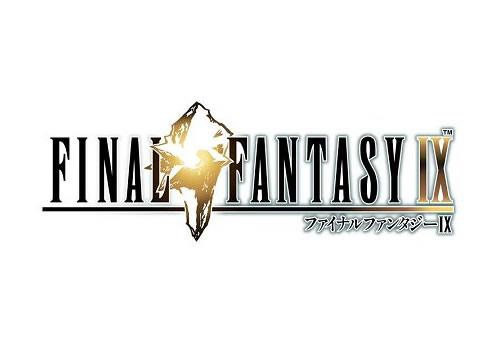
Final Fantasy IX is the last original FF title to come out for the original Playstation console, and is certainly a return to the previous status of the series. Chocobos and Moogles are back in force in major roles, and the game is all about Kings, Queens, Princesses and Kingdoms -- at least, at first. FF9 is similar to FF1 in that it begins with a simple story -- you must kidnap a princess -- and then evolves into a more complex plot which leaves the whole world in danger and cuts very deep into the personal background of every character.
The game featured a return of a full equipment roster, something missing from the previous two titles - they only allowed a few different items to be equipped, whereas FF9 returns to the old FF style, allowing things to be equipped on each part of the body. In battles once more you can use four characters, and each character has a clear class and set ability. In the art design department the game also harked back to previous titles in the series, with the characters back to the deformed look of their SNES counterparts. The Black Mage, Vivi, exactly resembles his SNES and NES counterparts.
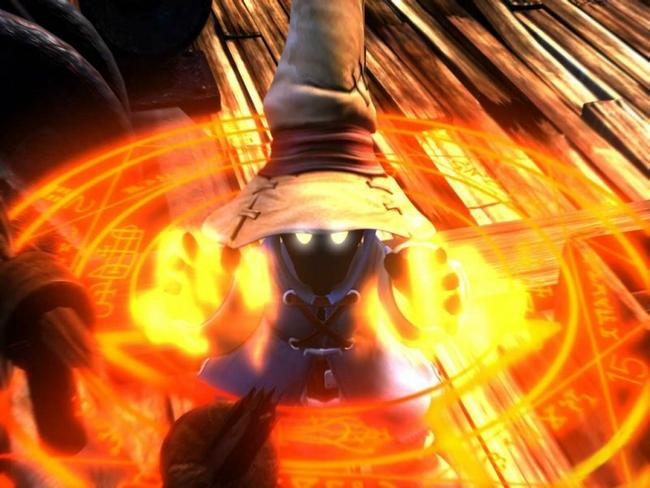
The game also features many references to past games -- the game opens with a play reminiscent of FF6's Opera, while the Auction House resembles the one from the same game. Smaller references include recurring names and characters returning, including FF1's evil Garland who attempts to take over the world yet again. FF9 was met with some negative press like 8 -- after the epic of FF7, few wanted a cute, basic art direction like the SNES titles, but FF9 holds a much stronger position in the core FF fanbase than 8, considered one of the best and a return to form for the series.
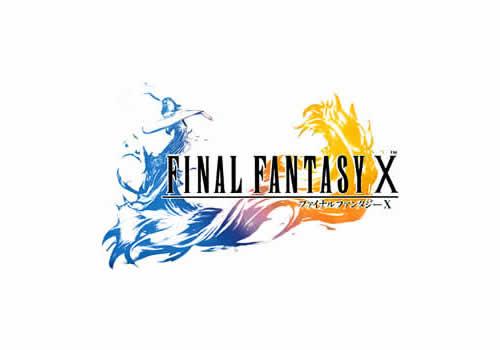
Final Fantasy X is largely considered the very first of a stream of fantastic RPGs for the PS2. Considering FF9 had little to no actual additions to the series, Final Fantasy X added perhaps the biggest thing since FF3's job system -- voice acting. The game featured hours of speech recorded for almost every character in game, which served to make the Final Fantasy experience even more cinematic. The game also boasted a significant graphical increase over the previous titles, and featured the all new sphere grid system for learning abilities.
FF10 also allowed the player to switch party members on the fly mid-battle, but once again the player was only allowed three party members at any given time. The game was a resounding success -- the biggest since FFVII, and has built a huge fanbase of its very own. It is also the first FF title to have a direct sequel, FFX-2.
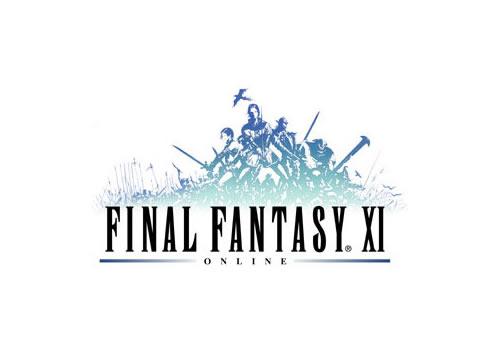
Final Fantasy XI is by far the biggest departure from the series. No matter how different FF2 was, it is nothing on FF11, which wasn't even a single-player experience. Final Fantasy XI is one of the most ambitious MMORPGs ever created, attempting to bring the FF experience alive in a real living-breathing game world. Despite the actual idea of the game being radically different, the game is still definitely an FF through and through -- Magic, races and classes featured in the game are all ripped from previous titles in the series, with Chocobos and other FF favourites also making an appearance.
Final Fantasy XI is also another FF first -- it is the first title to have identical versions released on multiple consoles. While FF1-6 are on their first consoles and have ports to other consoles, each version is different. FF11 is on the PC, Xbox 360 and PS2, with all versions identical. The game also has several expansion packs.
Worth a mention...
Of course, the main FF "canon" ends there, but there have been multiple spin-off titles that have greatly effected the direction of the series.
Final Fantasy X-2 is by far the most influential. This game proved that a sequel to a original FF game could work, and with the recently announced DS follow-up to Final Fantasy XII, it is clear after FFX2 Square intend to make this somewhat of a tradition. FFX2 also saw the return of the job System, but this time called "dress spheres."
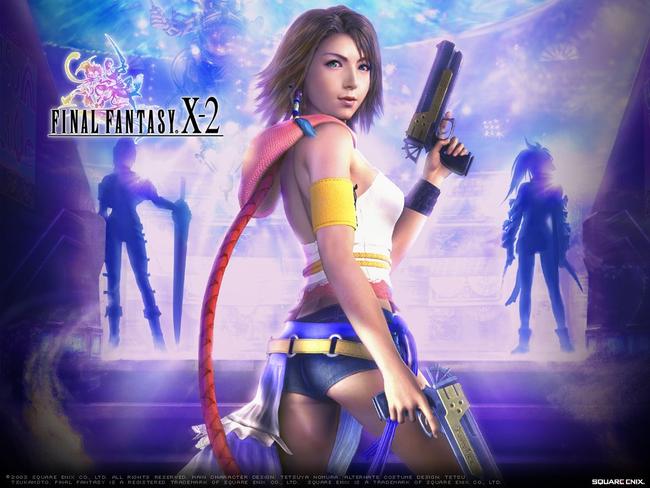
Final Fantasy Crystal Chronicles is a multiplayer version of the series for Nintendo consoles. These continue the art style of the original games more closely, and offer a very different, action-oriented mode of gameplay to the main series.
Compilation of Final Fantasy VII is a collection of things relating to Final Fantasy VII of varying quality. The compilation includes the movie, Advent Children, Vincent's game Dirge of Cerberus, Before Crisis and Crisis Core. While designed to milk the success of Final Fantasy VII, they are certainly part of FF's heritage.

Final Fantasy Tactics is by far the most revered of the spin-off titles. The mini series contains two titles -- the original, and a Game Boy Advance sequel. The title takes the FF job system and puts it into a strategy RPG. The game was considered a side project, but was a surprising success. It featured cameos by Cloud and Aeris. The GBA sequel was the first FF on a Nintendo console in around 7 years, and featured more of the same, simply making it portable.
...And that's about it! There are other titles I could mention -- Game Boy titles, Ports and "International" and "Final" versions, but that's all very boring. Squaresoft - now Square-Enix moved from beinga struggling gaming company to a gaming god, creators of the third biggest selling videogame series of all time... all thanks to Sakaguchi's Final Fantasy. It has graced Nintendo, Sony, Wonderswan Colour, Mobile Phones and more, and is only bested in sales by Mario and Pokemon.
The story of Final Fantasy is far from over, and with the release of Final Fantasy XII, which we scored a whopping 9.2, the future looks bright for FF fans. No matter what path the series takes, if it continues to deliver incredible storytelling in a fun gameplay package, it will always be a success. As they say, the proof is in the pudding. This December, it'll be 19 years of Final Fantasy, which is more than enough proof of just how enduring a series it is.